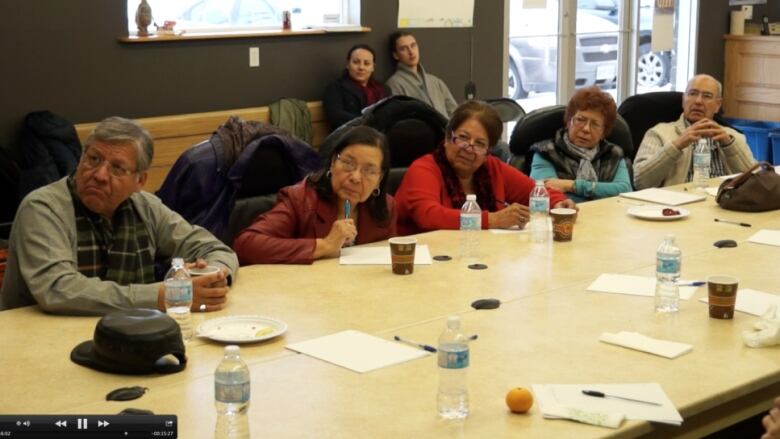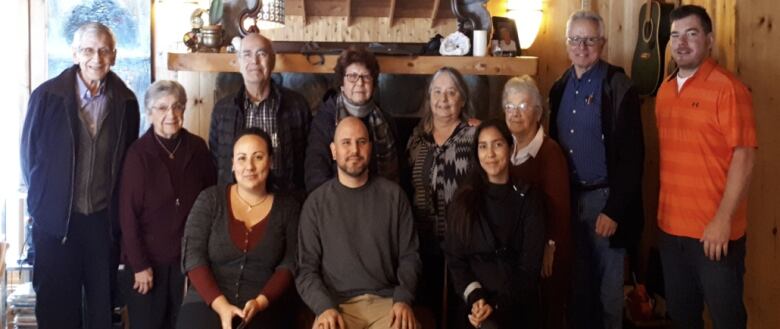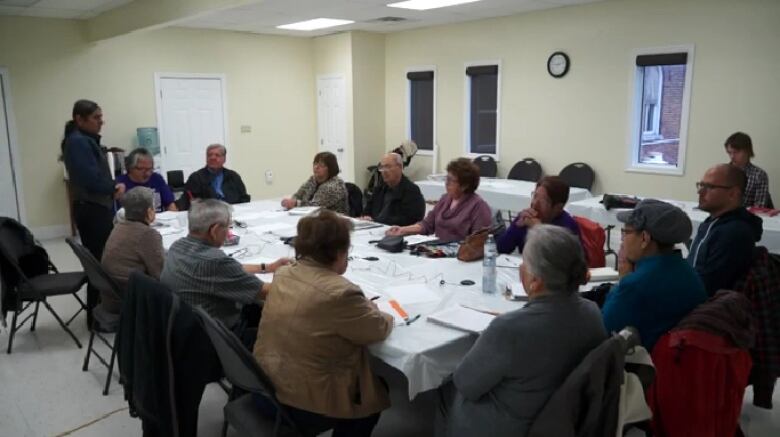As 1st language Kanien'kha speakers dwindle, communities unite to revitalize the language
Catalogue of sessions with 1st language speakers made available online

MinaBeauvaisbelieves she's still here to carry on Kanien'kha(Mohawk language), a language that is critically endangered and spoken by roughly 932 people in North America as their first language.
Beauvais,85,and her two sisters are the last surviving of their 10 siblings.Kanien'keh:ka (Mohawk) fromKanehsat:ke,Beauvaisis committed to language revitalization.
"It's who we are, first of all, and I find that the young ones in our community that are not speakers seem very lost, right? They're the ones that go off track," saidBeauvais.
For nearly a decade,Tsi Tynnheht Onkwawn:na, alanguage immersion program in Tyendinaga Mohawk Territory about 200 kilometres east of Toronto, documented sessions with first language speakers of Kanien'kha to help develop a curriculum to revitalize the language.
The project is calledRatiwennkwas, which translates to"they are pulling the words from the water." Thecatalogue of sessions was made availableonline earlier this month.
Each session hasat least two first language speakers fromsix Kanien'keh:ka communities (Tyendinaga, Six Nations, Kahnaw:ke,Kanehsat:ke,Akwesasne andWahta) and brings them together with language learners.
Callie Hill, executive director ofTsi Tynnheht Onkwawn:na,saida grant was neededto initiate the project, which creates interaction between young people and seniors.
"Our whole lives are in our language and in our culture and who we are as Kanien'keh:ka and the need for having to pass that on to our little ones, to our descendants, our future generations," said Hill.
The project became an annual event building on each subsequent meeting.
A language of 'idioms and metaphors'
Tahohthartye Brant had intended to be a participant atsessions but was tasked with using his skills as a language learner to moderate them.
"It was an awesome opportunity but looking back and listening and re-listening to all theseRatiwennkwas[sessions]I understand where I was at with my proficiency at the time;it was very difficult."
Brant saidthe first language speakers "shared this excitement and desire to share their knowledge and make sure that knowledge got passed on in a good way."
The sessions were structured so the first language speakers could interact with each other throughout the weekend.

"It was like a being at home and talking with different people," Beauvaissaid.
"I think I was energized. We had so much fun."
The six sessions were structured with a theme, like idioms, metaphors and old words. To initiate dialogue between participants, different scenarios were set up.
In one scenario, Beauvaisrecalled pretending to bea vacuum cleaner salesperson selling a vacuum to another attendee. To do so she usedold Kanien'khatocreatenew words to describe modern appliances, like "drag it on the floor" for vacuum.
Brant said one of the most thought-provoking sessions was around idioms and metaphors. He said afirst language speaker posited that "the whole language is idioms and metaphors."
Kanien'khais a descriptive language that usesmany shorter words together to createotherwords.

Brant used the Kanien'kha word for dying as an example. There are several words in Kanien'khathatare context specific: sahahikha' (he's gone to pick berries again), iakonontahr:'on (she got to the top of the hill), ia'thotshntho'se' (the sun set on him), wa'karonti:nen'ne' (the tree or log fell down from a standing position).
And there are different words for different situations,Brant said, for examplewhen speaking with children versusspeaking with elders.












_(720p).jpg)


 OFFICIAL HD MUSIC VIDEO.jpg)
.jpg)



























































































